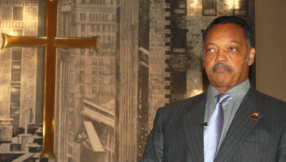Pray for our farmers
The appeal followed the Bishop of Swansea and Brecon’s intervention at the Royal Welsh Show last week in which he called for the introduction of an independent mediator to intervene in disputes between farmers and retailers, suggesting that it would help consumers, processors and retailers.
Bishop John Davies’ comments follow protests by dairy farmers after four milk processors said they were cutting the price they paid producers by two pence per litre. He said an independent arbiter would be a form of early intervention across all supply chains, whether they were milk or meat.
He said: “When a massive retailer states that it is a reliable customer for the milk produced by dairy farmers and demonstrates its so-called reliability by paying the farmer less for the milk than it costs the farmer to produce, justice is not being done. A bit of the jigsaw is missing.”
In the latest twist the BBC’s Farming Today programme reported that milk processors are delaying their cuts to dairy farmers. However, Farming Minister Jim Paice admitted that he does not know if government departments and public services, like schools and hospitals, are paying farmers enough to cover their costs.
“Farming has always been a risky business” says Rev Canon Glyn Evans, Rural Officer, Diocese of Oxford “and farmers are well used to managing those risks. This year, however, is proving to be quite exceptional, bringing with it concerns of a much greater magnitude than normal. When these worries are amplified by the isolation of rural living and the sense of neglect felt by many farmers, increasing pressures can prove too much, sometimes resulting in tragic and devastating consequences."
He added that prayers were needed for the farming community who "everyday face the consequences of this terrible weather and who often pay a much higher price than the consumers of their production”.
The prayer, composed by the Rt Rev Donald Allister, read: “Heavenly Father, the earth is yours and the harvests are your bounty. We pray for our arable farmers in this year of extreme weather. We pray for our dairy farmers with supermarkets forcing the price of milk down and with bovine TB in some parts of the country. We ask your blessing on the harvest and on all who work in farming. We ask that farmers facing difficult times may know your love and our support. Through Jesus Christ our Lord. Amen."
Farm Crisis Network is available to provide practical and pastoral support to anyone in the farming community. FCN’s national helpline operates from 7.00am to 11.00 pm every day of the year: 0845 367 9990













